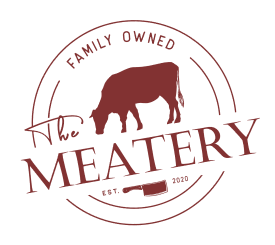Wagyu beef has captured the attention and taste buds of food enthusiasts worldwide. But what exactly makes wagyu beef so special, and how can you be sure you're making an informed buying decision? In this article, we will explore everything from grading standards and buying tips to sustainable farming practices and optimal cooking methods, ensuring you have all the information necessary to appreciate and select wagyu beef confidently.
Understanding the Wagyu Grading System
Wagyu beef is famous for its exceptional quality, largely due to Japan’s stringent grading standards set by the Japanese Meat Grading Association (JMGA). The grading system assesses several essential characteristics:
Yield Grade
Yield refers to the proportion of meat obtained from a carcass, ranging from A (highest) to C (lowest). Grade A offers maximum value, indicating a higher amount of usable, premium meat.
Beef Marbling Score (BMS)
Marbling, or the intramuscular fat dispersed within the beef, is the primary factor determining wagyu's grade. Scores range from 1 (least marbling) to 12 (most marbling). Greater marbling equals enhanced tenderness, richness, and juiciness, making it highly sought after.
Beef Color Score (BCS)
The beef’s color significantly influences its visual appeal and freshness. Scores range from 1 (brightest red) to 7 (darkest red), with the ideal score for wagyu typically between 3 and 5.
Beef Firmness Score (BFS)
Texture and firmness ratings span from 1 (firmest) to 5 (softest). A balanced, medium firmness score around 3 is optimal for maintaining a pleasant mouthfeel without sacrificing tenderness.
Buying Guide: How to Choose Quality Wagyu Beef
Selecting wagyu beef requires an understanding of grading and labels to ensure premium quality:
Grades
-
A5: Top-tier wagyu boasting a BMS of 8-12 and optimal firmness. Highly prized, it offers the richest experience.
-
A4: Exceptional quality, with slightly less marbling (BMS 6-8) but still delivering remarkable taste and tenderness.
-
A3: Good quality, more accessible price point, yet less marbling (BMS 4-6), suitable for those new to wagyu.
Labels
Recognize labels such as "Japanese Wagyu," "Australian Wagyu," and "American Wagyu." Japanese Wagyu generally commands the highest regard due to rigorous quality standards, though Australian and American Wagyu offer excellent quality alternatives at different price points.
Sourcing from Reputable Providers
Always buy from reputable specialty butchers, renowned online retailers, or established markets that authenticate their wagyu sources to ensure you receive genuine, high-quality wagyu beef.
Sustainability and Ethical Farming Practices
As the popularity of wagyu beef continues to grow, responsible farming practices become critical in maintaining sustainability and animal welfare:
Selective Breeding
Wagyu cattle breeding involves meticulously controlled programs to maintain unique genetic characteristics, particularly marbling traits. Responsible farms focus on preserving breed integrity for future generations.
Pasture Management and Rotational Grazing
Many farms use sustainable practices like rotational grazing, which involves periodically relocating cattle to different pastures. This allows pastures to regenerate, enhances soil health, and reduces reliance on supplementary feed.
Sustainable Feed Sources
Quality feed significantly influences wagyu's renowned marbling. Many sustainable wagyu farms prioritize locally sourced, non-GMO feeds to reduce their ecological footprint and support community agriculture.
What Do Wagyu Cattle Eat?
Wagyu beef’s signature marbling and flavor come directly from carefully managed diets:
Grazing and Forage
Much of wagyu cattle's early diet consists of lush pasture grasses, providing essential nutrients that support health and marbling development.
Grain Feeding for Enhanced Marbling
As cattle mature, they're introduced to grain-based diets including corn, barley, wheat, and other cereals. These ingredients encourage intramuscular fat accumulation, creating the distinctive wagyu marbling pattern.
Unique Supplements and Traditional Techniques
Occasionally, wagyu cattle diets incorporate supplements like beer, sake lees, or other fermented products. While scientifically debated, many traditional Japanese farmers claim these additives enhance flavor and tenderness.
Quality Water Access
Consistent access to clean, fresh water sources—often from mountain springs or filtered reservoirs—supports cattle hydration and health, further contributing to meat quality.
Additional Cultural Practices
Japanese wagyu farming practices, such as massaging cattle or playing calming music during feeding, are believed to reduce stress and enhance meat quality. While the effectiveness of these practices isn't universally proven, they reflect cultural dedication to premium cattle raising.
Cooking Tips to Get the Most from Your Wagyu Beef
Cooking wagyu correctly maximizes its unique qualities. Here are key guidelines to achieve optimal flavor and tenderness:
Ideal Cooking Temperature
Due to wagyu’s intense marbling, cooking at lower temperatures prevents fat loss and preserves juiciness. Aim for internal temperatures of 125°F to 135°F (medium-rare).
Seasoning Suggestions
The rich, buttery flavor of wagyu means minimal seasoning is needed. Usually, simple seasonings like salt, pepper, or a slight touch of garlic accentuate its natural taste perfectly.
Recommended Cooking Methods
-
Grilling: Quickly sear over high heat to caramelize the outer layer and finish at a lower temperature zone to ensure internal tenderness.
-
Pan-Searing: Choose a heavy-bottomed skillet, ideally cast iron, ensuring uniform heat distribution and a perfect crust.
-
Sous Vide: Ideal for precision cooking, sous vide evenly cooks wagyu, preserving tenderness and juiciness.
Resting Time
Always let wagyu rest for 5-10 minutes after cooking. Resting helps juices redistribute evenly throughout the meat, enhancing flavor and texture.
Health and Nutritional Benefits of Wagyu Beef
Despite its high-fat content, wagyu beef provides significant health benefits when consumed in moderation:
Rich in Healthy Fats
Wagyu contains high levels of monounsaturated fats, such as oleic acid, also present in olive oil. These fats support heart health and reduce bad cholesterol.
Packed with Essential Nutrients
Wagyu beef is rich in essential vitamins and minerals, including iron, zinc, and B vitamins, vital for overall health and wellness.
Protein-Rich
An excellent source of high-quality protein, wagyu beef aids muscle development, strength maintenance, and tissue repair.
Final Thoughts: The Wagyu Experience
Wagyu beef is more than a luxury meat product—it's the culmination of meticulous breeding practices, sustainable farming, and culinary tradition. Understanding the intricacies of wagyu—from grading systems to responsible sourcing, optimal cooking techniques, and dietary considerations—enhances your appreciation for this exceptional beef.
Investing in wagyu beef is an opportunity to experience unparalleled flavor and tenderness that reflect generations of dedicated farming practices and culinary craftsmanship. With this knowledge, you can confidently enjoy and select wagyu, celebrating a remarkable gastronomic tradition.









